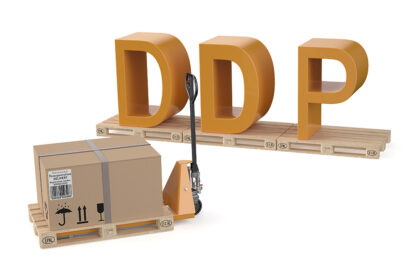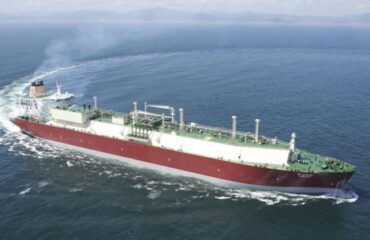
The DDP Incoterm regulates the shipment of goods under an international commercial contract. What are its conditions?
What is the DDP incoterm?
Incoterms determine the rules applicable to international trade. They define the division of obligations, costs and risks between seller and buyer in international transactions. They are represented by three letters and are divided into two groups: multimodal and maritime. TheDDP incoterm is one of the multimodal incoterms. It covers all modes of transport.
The incoterm code DDP stands for ” Delivered Duty Paid “. Under this incoterm, the costs and risks associated with transporting the goods are borne by the seller.
Use of DDP Incoterm
The DDP Incoterm can be used for all commercial exchanges, whether importing orexporting goods. It is applicable both within and outside the European Union.
Please note that the use of the DDP Incoterm should not be taken indiscriminately. The following conditions must be met:
- Find out about the exporter: does he honour his commitments? Is he experienced?… ;
- Ensure the stability of the logistics route ;
- Guarantee that the exporter knows the geographical area.
Difference between DDP and DAP incoterm
The DDP Incoterm differs from the DAP Incoterm in the settlement of customs and fiscal charges. If delivery is based on the DAP incoterm, transport costs are borne by the seller. Nevertheless, the buyer must pay import taxes. This means that the customer must pay full VAT and customs duties if these exceed the value-added allowance.
What are the obligations of the seller and buyer under the DDP incoterm?
Under the DDP Incoterm, most obligations fall to the seller. He assumes all costs and risks associated with thecommercial exchange up to the agreed place of delivery.
The seller’s responsibilities
The seller is obliged :
- Pack and transport goods to the departure platform;
- To pay the main transport costs;
- Carry out customs formalities, including customs clearance and payment of various duties and taxes. The seller is therefore responsible for paying the VAT. However, it is possible to reclaim this tax if the goods are exported to France.
In practice, the cost of the customs clearance procedure is borne by the transport companies, then invoiced to the seller.
The buyer’s responsibilities
Once the goods have been delivered to the buyer and cleared through customs, all he has to do is :
- Pay insurance costs;
- Unload goods at destination.
Obligations of the parties for the validity of the sales contract
For an international sales contract to be valid, it must specify :
- Identifying the parties ;
- Description of goods sold: quantity and quality;
- The place of delivery, which must be indicated after the words “Incoterm DDP”. However, it is not necessary to specify the obligations of the parties with regard to the delivery of the goods;
- The time of transfer of ownership, which is not covered by Incoterms.
In addition, the sales contract must specify the law applicable in the event of a dispute, which can be freely chosen by both parties. If the contract is silent on the subject, the judge determines the applicable legislation on the basis of international conventions.




